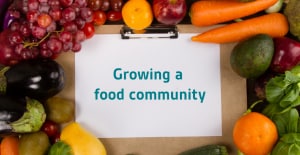Collaborate, innovate and accelerate; how standards build consensus and facilitate trade

As the population grows, knowledge expands and complexity accelerates through innovation, we find ourselves moving rapidly towards a new global village of interconnected systems, processes and behaviors. As such, it makes common sense that standardization becomes increasingly important.
If we continue to develop our own standards for our own little village, then we will just end up increasing complexity, frustration, cost and waste; ultimately slowing progress.
Plugs and sockets are a good example of where local standards remain in the village/country system. We have plugs and sockets for UK, America, Europe and many other countries have their own or a combination. Any international traveller will understand the frustration of having to deal with different plugs, sockets and devices. If you’re curious, a short history is available on the IEC (International Electrotechnical Commission) website.
Just imagine how simple it would be if every country used the same plugs and sockets; we could use the same cable to power our mobile phones, computers, printers, electrical appliances and gadgets. Life would be bliss. This would save costs, reduce frustration, reduce wastage and enable more efficient global manufacturing of products. In comparison, credit cards and ATM access are good examples of better global harmonization of digital information that make it easier to access money in multiple countries. This is because the banking system adopted an ISO standard.
Food safety is another example. Whether it’s ISO 22000, FSSC 22000, BRCGS Food Safety, Global GAP and HACCP, like the plug and socket working to deliver electricity to an appliance, at their heart these standards all work to help the industry deliver food that’s safe to eat. But, like the prongs of each plug differs in number and orientation, each food safety standard has its own requirements; driving complexity. By comparison medical devices, automotive and aerospace organizations adhere to a common, sector-specific standard.
And, as supply chain complexity increases, sector innovation evolves and new technologies, issues and opportunities emerge, the landscape of standards could become even more challenging. Can you imagine, if the same duplication of plugs and sockets is mirrored as we tackle new issues associated with renewable energy, circular economy, food safety culture, sustainable packaging, ocean health, cannabis, human rights, workplace ethics, novel foods, provenance and traceability?
In discussions with leading figures in the food and retail industry, we have heard time and again that the multiplicity of standards and assurance schemes has created a fragmented and inefficient supply chain structure imposing unnecessary costs on businesses that have no choice but to pass on to consumers.

BSI wants to change this and we are forming a global food and retail supply chain community with the objective of ensuring the right people are in the right place talking about the right issues, to build consensus and drive harmonized solutions. We will work with industry to agree how we can use best practice standards and conformity assessment to overcome key challenges.
Our role is to act as the neutral platform for experts to agree what good looks like. For over one hundred years, BSI has worked with business and industry; uniting over twelve thousand industry experts across sectors. Our work has resulted in the development of 65,000 standards and some of the world’s most adopted ISO business management standards including: 9001 (quality), 14001 (environment), 45001 (occupational health and safety), 27001 (information security) and 22301 (business continuity); which were all originally published as British Standards.
There may be cynics out there wondering ‘what’s in it for BSI?’. First it’s in our organization’s DNA: our royal charter. Part of the reason we exist is to:
…co-ordinate the efforts of companies and persons for the improvement, standardization and simplification of materials products and processes, so as to simplify production and distribution, and for the improvement, standardization and simplification of system for the management of business, safety, technology, services, and the environment and to eliminate the wastage of time and material involved in the production of an unnecessary variety of patterns and sizes of articles for one and the same purpose.
The BSI Food Community is a new way of fulfilling this Royal Charter requirement, and it’s one we’re excited about. Second, we also see it as a way for us to make sure that—as an organization providing services to the food sector—we are in-tune with the current and anticipated challenges of the sector so that we can continue to deliver high-quality, high-value products and services to our customers.
I have a favourite saying, “complexity equals confusion which is the enemy of trust and value”. Ultimately, the food sector is full of confusion, multiple standards and complexity. We look forward to working with the community membership to decrease complexity and confusion and increase trust and value.
If you’re interested in participating in the BSI Food Community email us today.
Author: David Horlock
Director, Global Food and Retail Supply Chain



